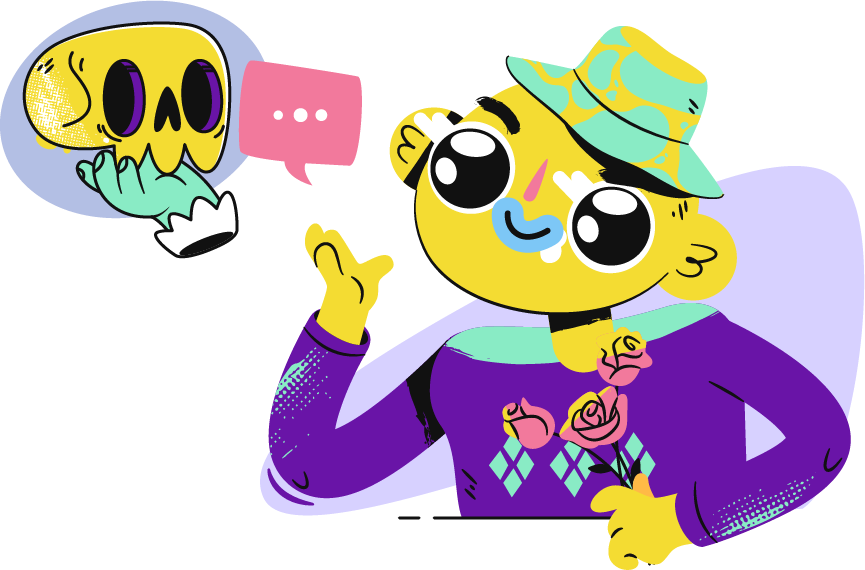Contents
Crafting a Brief Worthy of Your Project What You Should Not Do? What are the Actual Benefits of a Well-Written Brief? Conclusion8 min read
So, you have a killer idea bouncing around in your head – a story that needs to be shown in the glorious world of animation about your business! But before you give a head start to the animators and let the digital paint fly, there’s one crucial step: the animation brief. To put even more simply, it is the secret handshake between you and the animation team.
A well-written brief isn’t just a checklist; it’s a map leading to the exact results that your business needs. It ensures everyone’s on the same page, from the storyboard scribblers to the voice-over. Why?
Because a strong brief fosters understanding, minimizes those frustrating “wait, that’s not what I meant!” moments, and keeps the project running smoothly. One question: how to achieve that? Just keep reading, and you’ll know all the answers!
Crafting a Brief Worthy of Your Project
A powerful animation brief is not merely a document; it’s a collaborative tool that fosters understanding and alignment between the client and the animation team. It sets the stage for a smooth and efficient production process. Prepare to minimize miscommunication and ensuring that everyone is on the same page.
Now, let’s get down to brass tacks – how do you write this animation brief? Don’t worry, it’s not rocket science (although an animated rocket scientist could be a cool idea!).
Here’s a breakdown of the key elements:
Project Goals and Objectives: The “What” and “Why”
First things first: what’s the animation all about? Are you trying to sell a product, explain a complex concept, or simply entertain the masses? What are you hoping viewers will take away after watching your creation? Identifying these goals early on sets the direction for the entire project. 
Project Scope: Defining the Battlefield
Next, think about the animation’s playing field. How long will it be? Will it be a web-based cartoon, a mobile app masterpiece, or a contender for the big screen? Are there any specific technical needs, like compatibility with certain platforms? Outlining the scope helps keep the project manageable and ensures the final product is ready for its big debut.
Target Audience: Knowing Who You’re Serving Up To
Who are you trying to reach with your animation? Are you aiming for giggles from tiny tots or side-splitting humor for adults? Understanding your target audience is critical. It helps the animation team tailor the story, characters, and humor to resonate with the viewers. Imagine showing a slapstick cartoon about a clumsy dragon to a group of high school students – it might not land as well as a sci-fi adventure.
Creative Direction: Sharing Your Vision
Got any cool ideas swirling in your mind’s eye? Do you have a specific visual style in mind, like classic hand-drawn animation or a more modern 3D approach? Maybe you have inspiration from other cartoons or movies. Share these nuggets of gold with the animation team! It helps them understand your vision and translate it into a visually stunning masterpiece.
Technical Requirements: The Vital Details
Sometimes, there are technical considerations you need to keep in mind. Do you need the animation in a specific format, like a high-resolution video file? Are there any compatibility needs with software or platforms? Specifying these details upfront ensures the animation team delivers a product that works seamlessly wherever it needs to be.
Timeline and Budget: Keeping it Real
Here comes reality check time! How long do you have for this project? And what’s your budget like? Being realistic about these factors helps the animation team plan accordingly. It also fosters transparency and avoids any budgeting surprises down the line. 
What You Should Not Do?
Some people forget that a brief is still brief. The very name suggests it should be concise. Just a few pages, that’s it. Imagine your creative brief is like a map leading to buried treasure (which is your marketing campaign’s success!). A one-page map is ideal, but if you’re venturing into trickier territory, a two-pager might be necessary.
The key is to only include stuff that helps you find the treasure, not a picnic basket full of irrelevant info. The more complex the marketing challenge, the more details you might need on the map – like where the X marks the spot, or if you need to dodge any social media swamps along the way. On the other hand, a brief that’s too vague leaves your animator adrift. They won’t know the target audience, the desired tone, or even the video’s purpose.
Fix: Don’t be afraid to provide some precise comments. Outline the video’s goals (brand awareness, product launch, etc.), target audience demographics, and desired tone (serious, humorous, etc.). What else? We recommend building a more detailed profile of your ideal customer, almost like a character sketch.
This deep dive isn’t for everyone, but it’s super important for the writers and directors to truly understand who they’re reaching. Here’s the thing: a skimpy creative brief is like going to the doctor and leaving out key details. The treatment won’t be good, right?
What are the Actual Benefits of a Well-Written Brief?
We’ll take our own example. In Darvideo, a good brief allows us for:
Streamlined Workflow & Saved Time: Precise planning from the outset translates to a smoother development process, saving valuable time for everyone involved.
Fewer Revisions & Improved Accuracy: A clear and concise brief empowers creatives to make informed decisions upfront, minimizing the need for revisions and ensuring project accuracy.
Targeted Messaging & Increased ROI: Defining key metrics early on allows us to tailor the message and its visual delivery to resonate perfectly with your target audience, leading to a greater return on your investment.
Enhanced Design & Scalability: By understanding your project’s goals, we can consider the design system that will be created for the project. This foresight allows us to suggest ways to expand on it and maximize your ROI by utilizing the system for future endeavors.
Conclusion
A brief is a strategic tool, vital for the process of creating an animation. During it, you make a stage for better communication, and, eventually, better results. Never skip it, and invest your time and energy into it.








